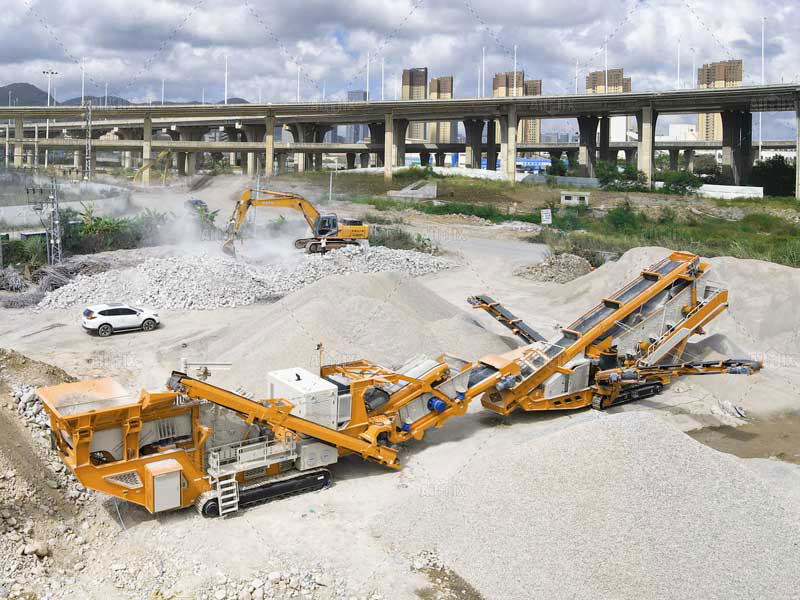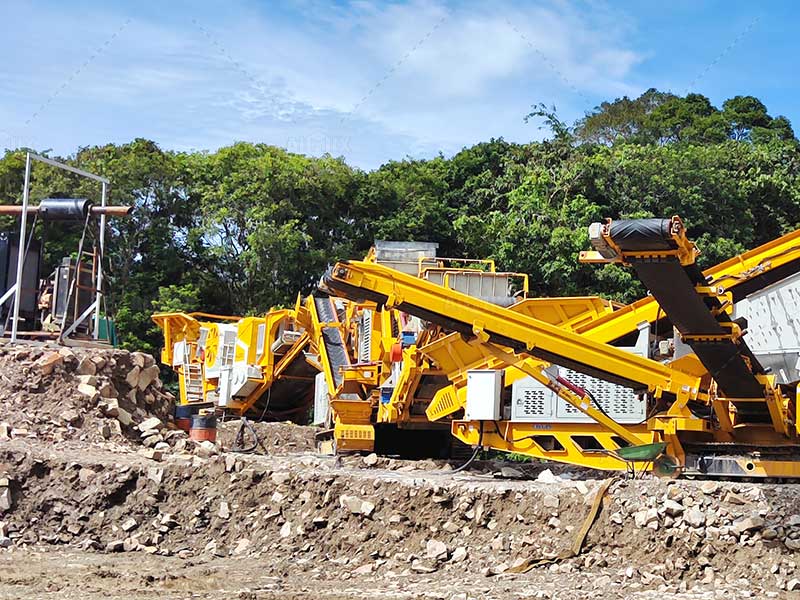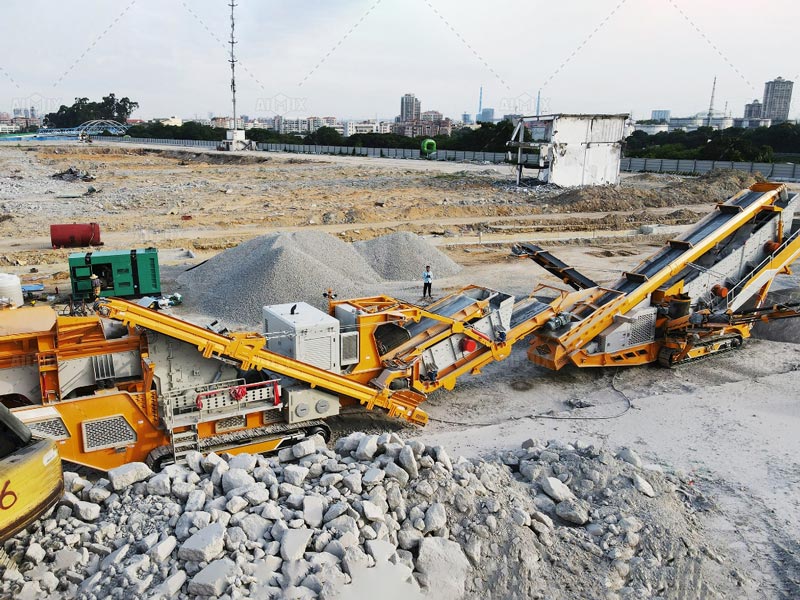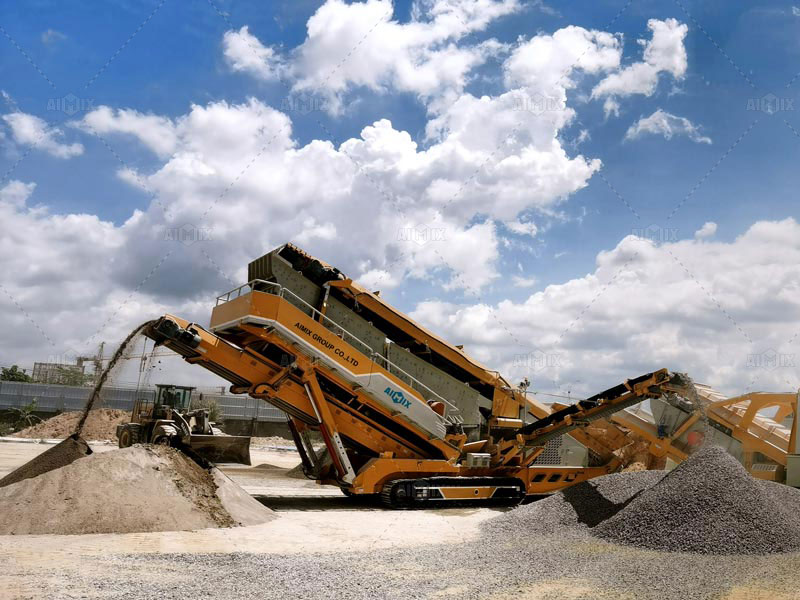15
0
0
Hvilken størrelse på steinknuseranlegg trenger jeg til min steinbrudd?
9
China
0
Choosing the right size rock crusher for your quarry is critical to the success of your operation. A properly sized plant maximizes efficiency, reduces costs and ensures you meet production targets. But how do you decide which size you need? This article will guide you through important considerations so that you can make an informed decision.( [url=størrelse på et steinknuseranlegg]crusher machine[/url] )

Understand the needs of your quarry
Before choosing a stone crusher plant, you need to consider your quarry's specific needs. Factors such as material type, desired output and production goals play a significant role in determining the correct size. Start by analyzing the type of stone or rock you want to process. Harder materials such as granite or basalt require more powerful crushers, while softer materials such as limestone or sandstone may require less energy-intensive equipment.
Material type and hardness
The hardness of the material directly affects the type and size of the crusher plant you need ( stone crusher plant for sale ). For example, if your quarry handles hard rock, you may need a larger, more robust crusher. This ensures that the machine can withstand the harshness of the material and deliver consistent output. On the other hand, for softer materials, a smaller, less complex crusher may be sufficient, saving you both time and money.
Production capacity requirements
Your production goals are another critical factor. If you are aiming for high-volume production, you will need a larger stone crusher plant capable of processing significant amounts of material. A smaller facility may struggle to meet your goals, leading to bottlenecks and inefficiencies. Consider your daily, weekly and monthly production goals when determining the right size of your crushing plant.
Choose between stationary and mobile crusher plants ( mobile crusher Indonesia)
The choice between a stationary or mobile crushing plant also affects the size you need. Stationary plants are ideal for long-term projects where the plant will remain in one place. These plants can be larger, as they do not need to be moved often. On the other hand, mobile crushing plants are better suited for projects that require flexibility. These facilities can be easily moved, making them ideal for quarries with multiple locations or varying project requirements.
Advantages of stationary crushing plants
Stationary crushing plants offer several advantages. They usually have higher capacity, which makes them suitable for large-scale operation. In addition, these facilities are often more durable and require less maintenance due to their permanent installation. If your quarry has consistent, long-term production needs, a stationary crushing plant may be the best choice.
Advantages of mobile crushing plants
Mobile crushing plants offer unrivaled flexibility. They are perfect for quarries with varying requirements or where the extraction site changes frequently. These plants are compact, which makes them easier to transport and install. Despite their smaller size, modern mobile crushing plants offer impressive production capacity, making them a viable option for many quarry operations.

Determining the right type of crusher
The type of crusher you choose also affects the size of the stone crusher plant you need. Common types include jaw crushers, impact crushers and cone crushers. Each type has its strengths and is better suited to specific applications.
Jaw crushers
Jaw crushers are ideal for primary crushing. They are robust machines capable of handling large, coarse materials. If your quarry processes large stones or rocks, a jaw crusher is probably necessary. These machines are usually used in larger crushing plants due to their capacity to process significant volumes.
Impact crushers
Impact crushers are perfect for producing finer materials. They work by striking the material with high-speed rotating hammers, which breaks it down into smaller pieces. If your quarry needs to produce finely crushed material for applications such as road construction or asphalt production, an impact crusher may be the best option. These machines are often used in combination with jaw crushers in larger plants to produce a range of material sizes.
Cone crushers
Cone crushers are ideal for secondary crushing. They are effective in reducing material size after the initial crushing phase. If your quarry requires multiple stages of crushing, a cone crusher should be part of your rock crushing plant. These machines can handle a wide range of materials and are often found in medium to large crushing plants.
Calculate your production needs for the quarry
Accurate calculations are essential when deciding the size of your stone crusher plant. You must consider the size of the feed, the hardness of the material and the desired output size. In addition, you must take into account daily operating hours and the expected efficiency of the crusher.
The size of the feed and the hardness of the material
Larger feed sizes require more powerful crushers. If your quarry handles large rocks, make sure the crusher you choose can handle the maximum feed size. In addition, harder materials require more crushing power, which may necessitate a larger, more powerful plant.
Desired output size
The output size you need will also determine the size of the crusher plant. If you need to produce small, finely crushed materials, multiple crushing stages may be required, leading to a larger plant. On the other hand, if larger aggregates are your goal, a simpler, smaller plant may be sufficient.
Daily operating hours
Think about how many hours per day your crushing plant will be in operation. Longer operating hours may require a more durable, larger machine to avoid frequent downtime. If your quarry is only in operation for a few hours a day, a smaller, less robust plant may be sufficient.

Make the final decision
Choosing the right size of stone crusher plant for your quarry involves careful consideration of various factors. Understanding your material, production needs and type of crusher is essential. Regardless of whether you choose a stationary or mobile crushing plant, it must be in line with your operational goals.
Ultimately, the right stone crusher plant will improve the efficiency of your quarry, reduce operating costs and help you achieve your production goals. By taking the time to analyze your specific needs, you can make a well-informed decision that will benefit your quarry in the long term.
If you are still unsure about the size of stone crusher plant you need, consult with industry experts or manufacturers. They can offer tailored advice based on your quarry's unique needs, ensuring you choose the best equipment for your operation.
Conclusion
Choosing the right size of stone crusher plant is a critical decision for any quarry operation. By understanding your specific needs, material properties and production goals, you can ensure that you choose a plant that meets your requirements. Whether you choose a stationary or mobile plant, it must suit your operation and contribute to efficiency and cost savings. Consider carefully and consult with experts to make the best choice for your quarry.

Understand the needs of your quarry
Before choosing a stone crusher plant, you need to consider your quarry's specific needs. Factors such as material type, desired output and production goals play a significant role in determining the correct size. Start by analyzing the type of stone or rock you want to process. Harder materials such as granite or basalt require more powerful crushers, while softer materials such as limestone or sandstone may require less energy-intensive equipment.
Material type and hardness
The hardness of the material directly affects the type and size of the crusher plant you need ( stone crusher plant for sale ). For example, if your quarry handles hard rock, you may need a larger, more robust crusher. This ensures that the machine can withstand the harshness of the material and deliver consistent output. On the other hand, for softer materials, a smaller, less complex crusher may be sufficient, saving you both time and money.
Production capacity requirements
Your production goals are another critical factor. If you are aiming for high-volume production, you will need a larger stone crusher plant capable of processing significant amounts of material. A smaller facility may struggle to meet your goals, leading to bottlenecks and inefficiencies. Consider your daily, weekly and monthly production goals when determining the right size of your crushing plant.
Choose between stationary and mobile crusher plants ( mobile crusher Indonesia)
The choice between a stationary or mobile crushing plant also affects the size you need. Stationary plants are ideal for long-term projects where the plant will remain in one place. These plants can be larger, as they do not need to be moved often. On the other hand, mobile crushing plants are better suited for projects that require flexibility. These facilities can be easily moved, making them ideal for quarries with multiple locations or varying project requirements.
Advantages of stationary crushing plants
Stationary crushing plants offer several advantages. They usually have higher capacity, which makes them suitable for large-scale operation. In addition, these facilities are often more durable and require less maintenance due to their permanent installation. If your quarry has consistent, long-term production needs, a stationary crushing plant may be the best choice.
Advantages of mobile crushing plants
Mobile crushing plants offer unrivaled flexibility. They are perfect for quarries with varying requirements or where the extraction site changes frequently. These plants are compact, which makes them easier to transport and install. Despite their smaller size, modern mobile crushing plants offer impressive production capacity, making them a viable option for many quarry operations.

Determining the right type of crusher
The type of crusher you choose also affects the size of the stone crusher plant you need. Common types include jaw crushers, impact crushers and cone crushers. Each type has its strengths and is better suited to specific applications.
Jaw crushers
Jaw crushers are ideal for primary crushing. They are robust machines capable of handling large, coarse materials. If your quarry processes large stones or rocks, a jaw crusher is probably necessary. These machines are usually used in larger crushing plants due to their capacity to process significant volumes.
Impact crushers
Impact crushers are perfect for producing finer materials. They work by striking the material with high-speed rotating hammers, which breaks it down into smaller pieces. If your quarry needs to produce finely crushed material for applications such as road construction or asphalt production, an impact crusher may be the best option. These machines are often used in combination with jaw crushers in larger plants to produce a range of material sizes.
Cone crushers
Cone crushers are ideal for secondary crushing. They are effective in reducing material size after the initial crushing phase. If your quarry requires multiple stages of crushing, a cone crusher should be part of your rock crushing plant. These machines can handle a wide range of materials and are often found in medium to large crushing plants.
Calculate your production needs for the quarry
Accurate calculations are essential when deciding the size of your stone crusher plant. You must consider the size of the feed, the hardness of the material and the desired output size. In addition, you must take into account daily operating hours and the expected efficiency of the crusher.
The size of the feed and the hardness of the material
Larger feed sizes require more powerful crushers. If your quarry handles large rocks, make sure the crusher you choose can handle the maximum feed size. In addition, harder materials require more crushing power, which may necessitate a larger, more powerful plant.
Desired output size
The output size you need will also determine the size of the crusher plant. If you need to produce small, finely crushed materials, multiple crushing stages may be required, leading to a larger plant. On the other hand, if larger aggregates are your goal, a simpler, smaller plant may be sufficient.
Daily operating hours
Think about how many hours per day your crushing plant will be in operation. Longer operating hours may require a more durable, larger machine to avoid frequent downtime. If your quarry is only in operation for a few hours a day, a smaller, less robust plant may be sufficient.

Make the final decision
Choosing the right size of stone crusher plant for your quarry involves careful consideration of various factors. Understanding your material, production needs and type of crusher is essential. Regardless of whether you choose a stationary or mobile crushing plant, it must be in line with your operational goals.
Ultimately, the right stone crusher plant will improve the efficiency of your quarry, reduce operating costs and help you achieve your production goals. By taking the time to analyze your specific needs, you can make a well-informed decision that will benefit your quarry in the long term.
If you are still unsure about the size of stone crusher plant you need, consult with industry experts or manufacturers. They can offer tailored advice based on your quarry's unique needs, ensuring you choose the best equipment for your operation.
Conclusion
Choosing the right size of stone crusher plant is a critical decision for any quarry operation. By understanding your specific needs, material properties and production goals, you can ensure that you choose a plant that meets your requirements. Whether you choose a stationary or mobile plant, it must suit your operation and contribute to efficiency and cost savings. Consider carefully and consult with experts to make the best choice for your quarry.
Signatur
